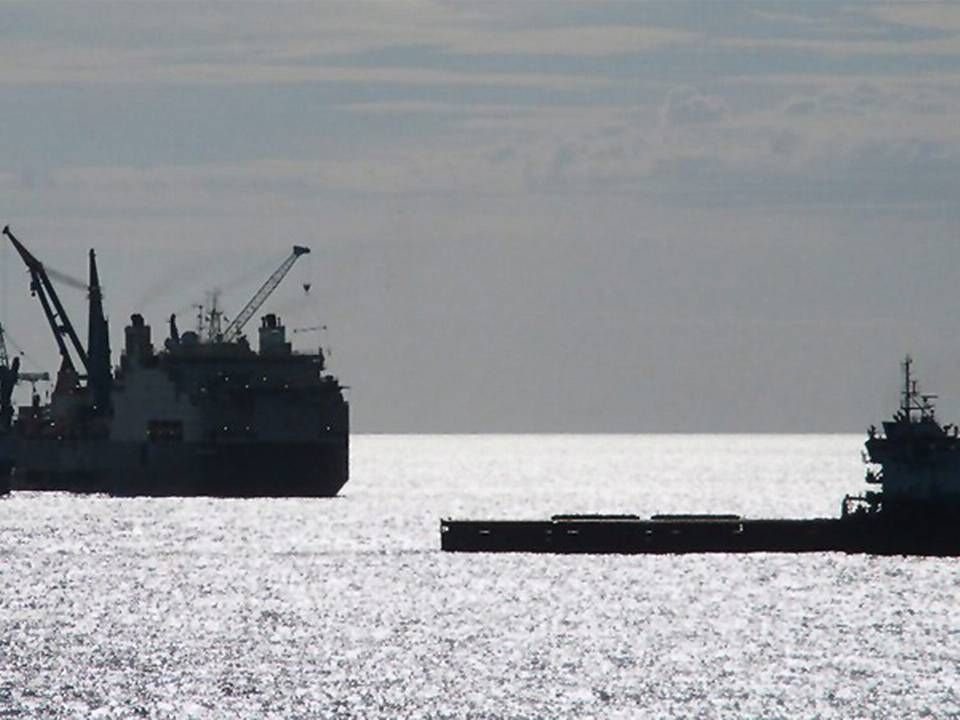This is how much the US Jones Act costs the shipping industry

Edited 11.12.2018 at 15:30 CET emphasizing that the numbers presented by the OECD refer to previous studies
It will soon be 100 years old, and under the current President, it seems very unlikely to be changed anytime soon.
This is the Jones Act, which is officially named the Merchant Marine Act of 1920. It was originally meant to protect US security interests, but it effectively most of all protects the US shipping industry against foreign competition.
These days, several expanding offshore shipping companies servicing the wind sector are planning to establish operations in the US, and they are met with the special requirements. Among other things, all good shipped between US ports must be carried by US-built ships, and these must also be owned and operated by as well as manned by Americans. As such, European shipowners' associations have for a long time been fighting against the legislation.
Significant extra costs
Previous studies about the Jones Act highlight the economic costs associated with the policy, as presented at the “OECD Workshop on factors impacting costs and distorting the shipbuilding market” which was held two weeks ago, that is:
• Transport costs are twice as high compared to a ship that is not subject to the Jones Act
• Operating costs are more than 2.7 times higher due to the requirement for an American crew
• The price of having a ship built is 2-4 times higher than ships built outside of the US
Preliminary simulation results of an OECD study presented at the workshop illustrate the potential economic benefits of a "hypothetical abolition of the Jones Act for the US economy in the long-term". The final results of the simulation could be published in the spring of 2019.
Beyond the fact that it can be significantly more expensive to have a ship built in the US than, for instance, in Asia, it can also be necessary to establish a US subsidiary in order to not miss out on the market potential found in America. One of the best known examples is probably Maersk's US company, Maersk Inc.
Protectionism does not work
"The numbers clearly show that protectionism is costly and damaging to customers. This also applies to the development of US offshore wind. It's unfortunately not only in the US that coastal shipping is reserved for national ships. Danish shipping companies are pioneers in offshore wind, so regardless of the US protection, there could be a significant market potential for the Danish shipping companies, for instance through partnerships, newbuilds under US-flag, etc," Jacob K. Clasen, Executive Director, association Danish Shipping, tells ShippingWatch.
Several Danish offshore shipping companies are currently working on plans to establish business in the US, including Esvagt.
ECSA, the organisation of European shipowners, agrees:
"The US Jones Act shows that protectionism does not work and results in a situation where ultimately everybody is worse off. Transport of cargo by sea is severely hampered and much more costly than in a situation without protectionism. The share of short sea shipping is compared to Europe very low. Also new developments like offshore wind are slowed down, making the energy transition slower and more costly than necessary," says Secretary General Martin Dorsman in an email to ShippingWatch.
Never on the President's desk
The US Customs and Border Patrol (CBP) has in the past proposed eliminating the legislation, which allowed now non-US flagged ships to carry specialized equipment for US offshore energy projects. But this proposal was blocked, just as several attempts from late Senator John McCain to get rid of the Jones Act failed.
In an interview with ShippingWatch in August last year, Kathy J. Metcalf, president of the Chamber of Shipping America (CSA), explained that McCain had waged what looked like a life-long battle against the Jones Act.
And as she said about his latest attempt to change the legislation:
"I would almost bet my life that it will not be voted on by Congress. Which means that it never lands at the president's desk for a signature."
English Edit: Daniel Logan Berg-Munch
US banks stuck with problematic offshore ships
Related articles
US banks stuck with problematic offshore ships
For subscribers
Jones Act still in effect despite crisis in Puerto Rico
For subscribers
Trump suspends Jones Act for Puerto Rico
For subscribers



















